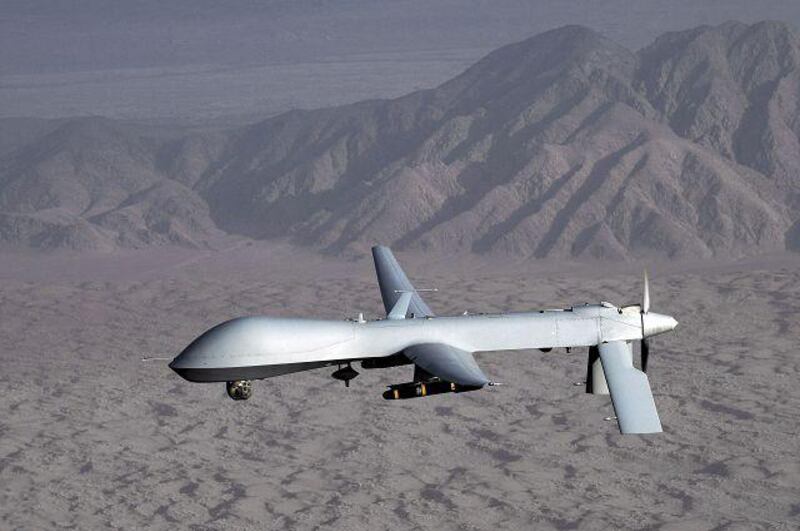Nearly nine years ago, Afghanistan was the stage for what the CIA trumpeted as one of the most storied chapters in its history. Agency operatives with knives strapped to their thighs and wads of $100 bills stuffed in their backpacks donned pakols and chapans, and galloped on horseback across the foothills of the Hindu Kush to advance the successful ousting of the al Qa'eda-harbouring Taliban from power.
Last week, it became the scene of one of the spy agency's biggest disasters, when a Kuwaiti-born Jordanian physician - reported to be a double and even triple agent working on behalf of al Qa'eda - passed unchecked into a CIA base near the south-eastern border town of Khost wearing an explosives vest and blew himself up, killing four agency employees, three security guards and a Jordanian intelligence officer escorting the man.
This "riches-to-rags" narrative, as seductive as it might seem, is misleading, however. For in between these milestones have been blunders of monumental proportions by the CIA, starting with the failure to apprehend Osama bin Laden at Tora Bora, the marshalling of "evidence" that Saddam Hussein had weapons of mass destruction, and the creation of a network of secret prisons for terrorism suspects that have proven a monumental embarrassment to the United States.
The fictional CIA is all-powerful; the real CIA has been in decline for years, not least for its performance in Afghanistan. Even before the attack, the agency's performance in the Central Asian country had been under fire. In a report issued on Tuesday by a Washington-based think tank but almost certainly drafted before the suicide bombing, Major Gen Michael Flynn used words such as "hazy", "incurious" and "ignorant" to describe the grasp that current US intelligence officials have on what is happening in Afghanistan. One unnamed operations officer for a US task force was even more scathing: he called the intelligence-gatherers "clueless".
Public criticism by an active duty military officer is almost unheard of in Washington. For an intelligence community that receives an estimated $50 billion (Dh184m) annually - in part to produce useful analyses for policymakers - it was also damning. Although details of the attack on the CIA base are sketchy and likely to remain so, it will probably inflict more damage on the agency's reputation, for it was an attack that seemed bound to happen. The targeted military post, called Forward Operating Base Chapman, was vulnerable to assault, from within or without.
For all the aura of secrecy that surrounds the CIA and its activities, any youngster in the nearby town of Khost could tell a visiting reporter "where the Americans were" and for a negotiable fee, escort him to the gate of the base. The risk of infiltration also was high. Afghans are employed as guards or to perform menial tasks at all US military and Nato installations in Afghanistan. There was motive, too. Quoting unnamed officials, The Washington Post reported that Forward Operating Base Chapman was at the heart of a covert programme overseeing strikes by the agency's remote-controlled aircraft - or drones - along the Afghanistan-Pakistan border.
In the past year, drones have hit al Qa'eda and the Taliban with more than 50 fatal missile strikes, according to media accounts. Keen for information on the whereabouts of key al Qa'eda figures that the Jordanian physician, Homam Khaleel Mohammad Abu Mallal, supposedly promised to provide, CIA operatives at the base presumably got careless. Ironically, the victims - among them the chief of the drone programme at the base, a mother of three young children, according to the Post - were engaged in the nitty-gritty of the spy game, which has suffered in the face of the agency's preoccupation with gadgets and technical intelligence collection: recruiting agents and informants, and "turning" enemies.
One of the biggest questions posed by the infiltration and bombing of the CIA base near Khost is: who can the agency trust? In the cloak-and-dagger world of spies, confidence is a rare commodity; in Afghanistan, where chequebook warfare is the order of the day, it is even rarer. For instance, Jalaluddin Haqqani, whose network is suspected by senior US military officials of helping carry out last week's attack, received between 1986 and 1994 tens of thousands of dollars directly from CIA officers working undercover in Pakistan, according to author Steve Coll.
For US and Nato troops, it is likely to complicate their already bewilderingly complex task - cobbling together "community defence forces" out of Afghanistan's welter of ethnic, tribal and political loyalties. Screening people joining the Afghan security forces now becomes an even more pressing task. Another place where trust is going to be a bit harder to come by in the wake of the bombing is Jordan.
The Hashemite kingdom's intelligence service was created by the CIA and has long been supported by the agency, writes Tim Weiner in Legacy of Ashes: The History of the CIA. After the September 11 attacks on New York and Washington, hundreds of millions in additional dollars were funnelled to the Jordanian General Intelligence Directorate to assist the agency in new covert operations. It was the GID that was reported to have vouched for Abu Mallal.
The bombing not only will roil an intelligence alliance that Washington deems key in the region. For Amman, it also calls attention to a relationship that it prefers to downplay, given the sour reputation of the CIA and many mukhabarat in the region. @Email:cnelson@thenational.ae






